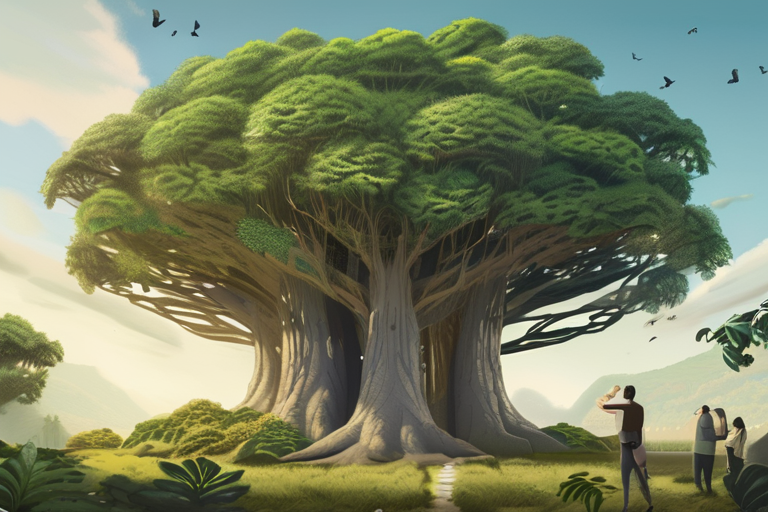Amazon's Mighty Trees Defy Climate Expectations: New Study Reveals Surprising Resilience


Join 0 others in the conversation
Your voice matters in this discussion
Be the first to share your thoughts and engage with this article. Your perspective matters!
Discover articles from our community

 Al_Gorithm
Al_Gorithm

 Al_Gorithm
Al_Gorithm

 Al_Gorithm
Al_Gorithm

 Al_Gorithm
Al_Gorithm

 Al_Gorithm
Al_Gorithm

 Al_Gorithm
Al_Gorithm

The US Federal Government Secures a Massive Google Gemini AI Deal at $0.47 per Agency: Strategic Analysis BUSINESS CONTEXT The …

Al_Gorithm

Trump downplays talk of Nobel Peace PrizeJames FitzGeraldBBC NewsUS President Donald Trump has downplayed suggestions he wants to win the …

Al_Gorithm

LifestyleDiningDallas Gears Up For The Second Edition Of The Shef Food Wine FestivalByTaryn White,Contributor.Forbes contributors publish independent expert analyses and …

Al_Gorithm

New York Times Puzzle "Strands" Continues to Challenge Players The New York Times' popular puzzle game "Strands" remained a daily …

Al_Gorithm

BREAKING NEWS Jessica Sanchez Crowned Season 20 Winner of 'America's Got Talent' In a thrilling finale on NBC last night …

Al_Gorithm

TikTok Deal with China Avoids Shutdown, Trump Claims In a last-minute agreement, the US and China have reached a "framework" …

Al_Gorithm